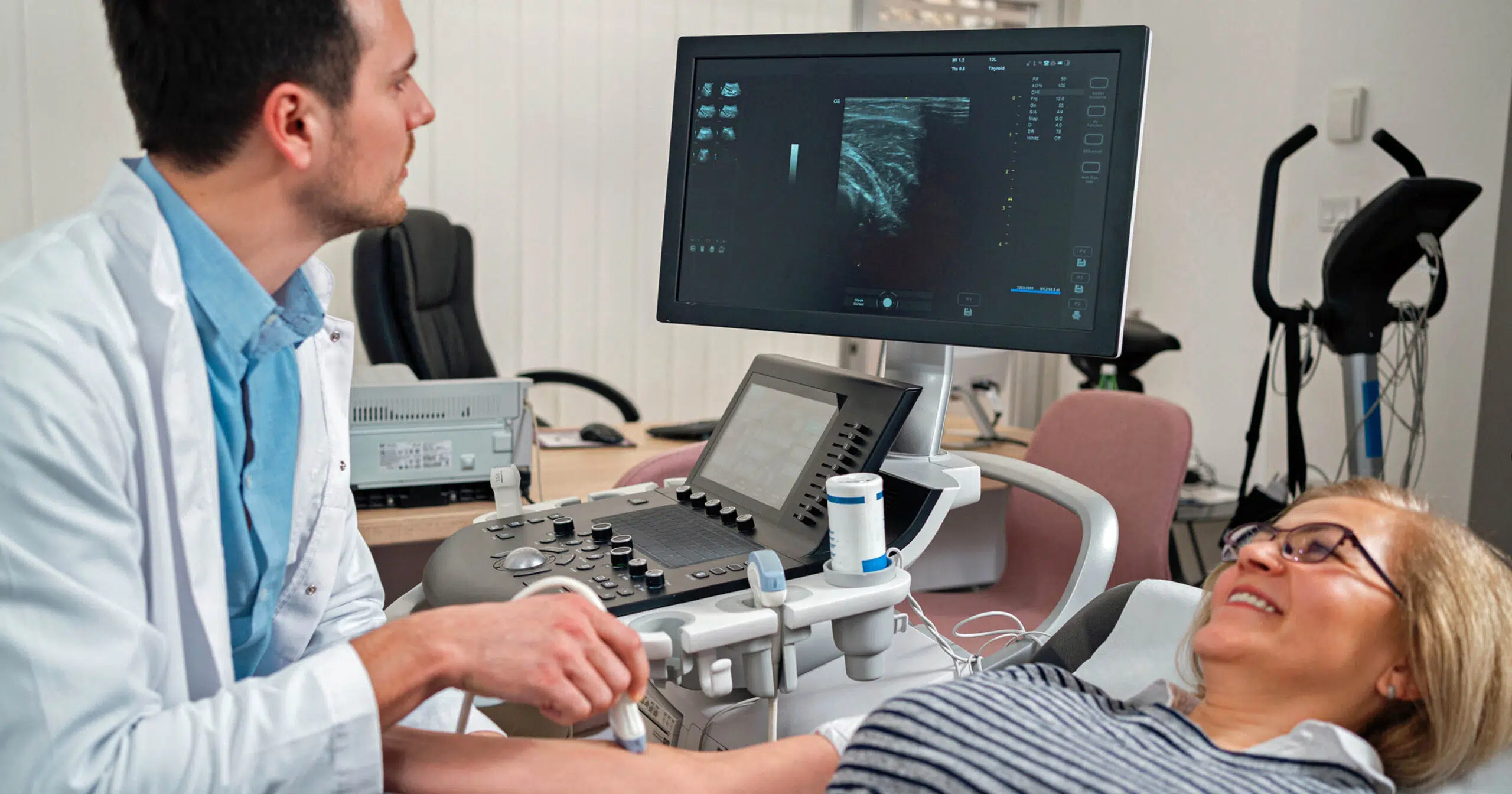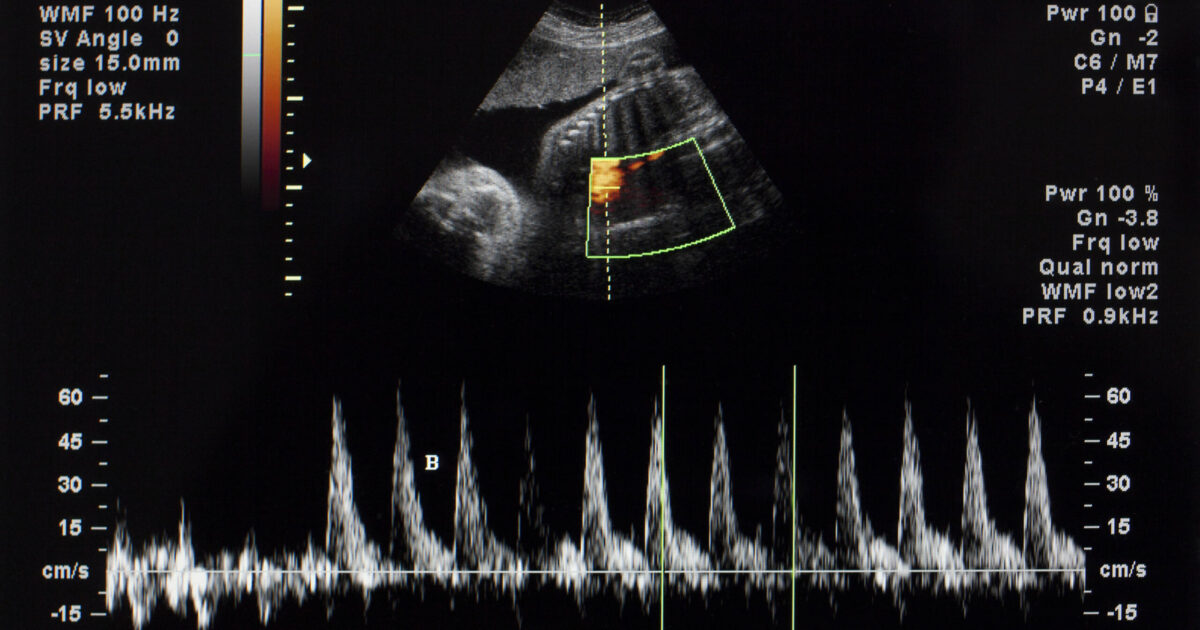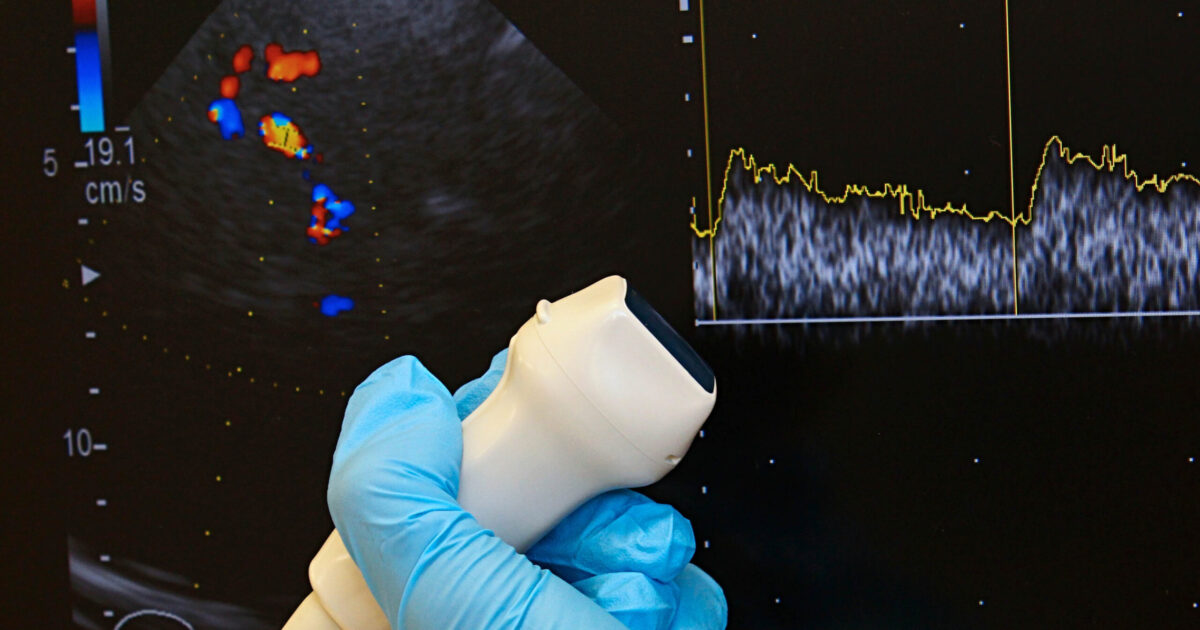Discover a niche where your allied health skills in diagnostic imaging fulfill a critical healthcare need and bring substantial financial rewards. In this article, Vivian Health unveils the sonography specialties that aren’t just in high demand—they’re the gateway to the best salaries in the field. Transform your career by turning your expertise into earnings in one of these seven specializations expected to pay top wages in 2024.
7 Top-Paying Sonographer and Ultrasound Tech Specialties
Sonography is a specialized field where trained technologists capture the images that allow healthcare teams to diagnose and treat patients. The more experience you have in diagnostic imaging, the more a sonographer’s salary grows. While your pay can also hinge on your location, facility and professional certifications, the area in which you specialize can have a greater impact on how much you make. This curated list of top-paying sonography specialties represents the pay rates offered for jobs posted on Vivian in April 2024.
1. Pediatric Echocardiographer

- Education Requirements: Associate’s Degree or Certificate-Based Program
- Relevant Certifications: RDCS – PE
- Average Weekly Travel Rate: $3,063
- Highest Weekly Travel Rate: $3,789
- Average Hourly Staff Rate: $42
- Average Annual Staff Salary: $87,360
- Highest Hourly Staff Rate: $65
A pediatric echocardiographer specializes in using echocardiography technology to evaluate the heart function and structures in infants, children and adolescents. They operate specialized ultrasound equipment to capture detailed images of the young patient’s heart, assessing for congenital heart defects, heart disease or other abnormalities. Their responsibilities include carefully preparing and positioning pediatric patients to ensure comfort and optimal imaging, interpreting the echocardiographic data and collaborating with pediatric cardiologists to aid in diagnosis and treatment planning. Their expertise is crucial in the early detection and management of heart issues in the pediatric population.
2. Adult Echocardiographer

- Education Requirements: Associate’s Degree or Certificate-Based Program
- Relevant Certifications: RDCS – AE
- Average Weekly Travel Rate: $2,659
- Highest Weekly Travel Rate: $2,912
- Average Hourly Staff Rate: $43
- Average Annual Staff Salary: $89,440
- Highest Hourly Staff Rate: $77
An adult echocardiographer specializes in using echocardiography technology to assess the heart’s structure and function in adults. This role involves operating ultrasound equipment to produce detailed images of the heart, including its chambers, valves and blood vessels. They conduct tests to evaluate heart health, detect abnormalities and monitor cardiac conditions. Their responsibilities include preparing patients for the procedure, capturing high-quality images and assisting cardiologists by providing data that contributes to diagnosing and treating heart-related illnesses. Echocardiographers play a vital role in cardiovascular care, offering crucial insights into heart performance and health.
3. Echo-Vascular Sonographer

- Education Requirements: Associate’s Degree or Certificate-Based Program
- Relevant Certifications: RDMS – RVT, RDCS – AE or RCS (CCI)
- Average Weekly Travel Rate: $2,481
- Highest Weekly Travel Rate: $3,798
- Average Hourly Staff Rate: $47
- Average Annual Staff Salary: $97,760
- Highest Hourly Staff Rate: $75
An echo-vascular sonographer is skilled in both echocardiography (sonography of the heart) and vascular sonography (sonography of the circulatory system), almost like a double specialization. They use ultrasound technology to perform diagnostic tests to identify heart conditions and vascular disorders like blockages or clots. Echo-vascular sonographers prepare and position patients, operate ultrasound imaging equipment to capture detailed images and analyze these images to provide critical information for diagnosing and treating cardiovascular diseases. Echo-vascular sonographers work closely with cardiologists and other healthcare providers to manage patient care effectively.
4. Fetal Echocardiographer

- Education Requirements: Associate’s Degree or Certificate-Based Program
- Relevant Certifications: RDCS – FE
- Average Weekly Travel Rate: $2,425
- Highest Weekly Travel Rate: $3,130
- Average Hourly Staff Rate: $43
- Average Annual Staff Salary: $89,440
- Highest Hourly Staff Rate: $77
A fetal echocardiographer specializes in using ultrasound technology to examine the hearts of unborn babies, primarily to detect and assess congenital heart defects before birth. They use advanced sonographic equipment to create detailed images and videos of the fetal heart, analyzing its structure, rhythm and function within the womb. Their role involves preparing the expectant mother for the procedure, capturing clear cardiac images and interpreting them to provide insights into fetal heart health. Fetal echocardiographers work closely with obstetricians and pediatric cardiologists to ensure accurate diagnosis and facilitate early intervention planning.
5. Pediatric Ultrasound Technologist

- Education Requirements: Associate’s Degree or Certificate-Based Program
- Relevant Certifications: RDMS-PS
- Average Weekly Travel Rate: $2,420
- Highest Weekly Travel Rate: $2,839
- Average Hourly Staff Rate: $53
- Average Annual Staff Salary: $110,240
- Highest Hourly Staff Rate: $78
A pediatric ultrasound technologist specializes in performing ultrasound examinations on infants, children and adolescents. They use sonographic equipment to produce images of various body parts, including abdominal organs, soft tissues and blood vessels, aiding in diagnosing medical conditions specific to younger patients. Their role requires adapting communication and handling techniques to suit the age and needs of children, ensuring patient comfort and cooperation during the procedures. These sonographers work closely with pediatricians to provide critical information that helps assess health issues, monitor growth and plan treatments tailored to the unique needs of pediatric patients.
6. Registered Ultrasound Technologist

- Education Requirements: Associate’s Degree or Certificate-Based Program
- Relevant Certifications: SPI plus RDMS-AB, RDMS-BR, RDMS-FE, RDMS-OB/GYN or RDMS-PS
- Average Weekly Travel Rate: $2,376
- Highest Weekly Travel Rate: $4,823
- Average Hourly Staff Rate: $53
- Average Annual Staff Salary: $110,240
- Highest Hourly Staff Rate: $78
A registered ultrasound technologist, also known as a diagnostic medical sonographer, operates ultrasound imaging equipment to capture images and conduct tests that help diagnose various medical conditions. They’re skilled in managing the ultrasound equipment, preparing patients for procedures, conducting scans and ensuring the production of clear images. Their expertise extends to interpreting preliminary results and collaborating with physicians to provide accurate diagnoses. Ultrasound techs can work across various specialties, including abdominal, obstetric, cardiac and vascular sonography, contributing crucial information for patient care and treatment planning.
7. Neurosonographer

- Education Requirements: Associate’s Degree or Certificate-Based Program
- Average Hourly Staff Rate: $44
- Average Annual Staff Salary: $91,520
- Highest Hourly Staff Rate: $68
A neurosonographer specializes in using ultrasound technology to capture detailed brain and nervous system images. This role typically involves examining blood flow and structures within the brain to assist in diagnosing and monitoring conditions like stroke, brain tumors and other neurological disorders. They operate transcranial Doppler systems and other specialized equipment to perform these examinations, often working in hospitals or neurological clinics. Their expertise supports neurologists in making accurate diagnoses and determining appropriate treatment plans for patients with neurological issues.
RELATED: 3 In-Demand Medical Imaging Careers & What They Pay
Explore Sonography Careers in Allied Health
To determine whether sonography fits your career aspirations, explore what sonographers do, the training pathway to jobs in this field and which specialties offer the highest-paying sonographer and ultrasound tech salaries.
The Role of Sonographers
Sonography, commonly known as ultrasound, is a diagnostic medical imaging technique used to visualize internal structures of the body, including muscles, tendons, blood vessels and organs, or to examine fetuses during pregnancy. This field employs high-frequency sound waves transmitted into the body using a transducer. As the sound waves bounce off bodily structures, they create echoes captured by the transducer and translated by a computer into real-time video. Unlike other imaging modalities such as X-rays, sonography doesn’t use ionizing radiation, making it a preferred choice for monitoring fetal development and conducting soft tissue examinations.
Sonographers operate ultrasound equipment, perform the scans and interpret the images under the supervision of doctors to aid in diagnosis and treatment planning. Digital imaging is crucial in many medical specialties, including obstetrics, cardiology and musculoskeletal medicine.
Becoming a Sonographer
Becoming a sonographer usually involves several steps, focusing on education, training and certification. You may need more advanced coursework or certification based on your specialty, but the following offers the general requirements to enter this field.
- Education: Most sonographers obtain an Associate’s Degree of Science in Diagnostic Medical Sonography from an accredited program. These programs usually take about two years to complete, but some offer flexible, longer-duration programs for full-time workers. Alternatively, getting into sonography is possible by completing a shorter-duration certificate-based program. However, this avenue is usually pursued by those with previous training in another medical field. Some sonographers opt for a Bachelor’s degree, which provides a more in-depth education and can enhance career opportunities.
- Clinical Experience: During their educational program, students must complete clinical rotations that provide hands-on experience in a medical setting under the supervision of experienced sonographers. This experience allows students to apply their theoretical knowledge in real-world scenarios.
- Certification and Specialization: After completing their educational requirements, graduates typically pursue allied health certification from organizations like the American Registry for Diagnostic Medical Sonography (ARDMS), Cardiovascular Credentialing International (CCI) or the American Registry of Radiologic Technologists (ARRT). Sonographers can choose to specialize in specific areas such as abdominal, breast, vascular or obstetric and gynecologic sonography or train to work with specific patient populations, such as children or adults, and pursue certifications related to those areas. Certification, which often involves passing an exam, isn’t mandatory everywhere but is highly regarded and sometimes required by employers.
This career path requires in-depth technical skills and medical knowledge. You also need strong interpersonal skills, as sonographers work directly with patients who may be in stressful medical situations.
Average Sonographer Salaries
Sonographer and ultrasound tech salaries tend to be well above the national average due to the skills involved and because the field is in high demand and set to grow substantially in the coming years. According to research published in March 2024, the number of ultrasound exams in the U.S. increased by 55% between 2011 and 2021. During the same time frame, the number of sonographers grew slower, at 44%, from 54,760 to 78,640.
Meanwhile, the Bureau of Labor Statistics predicts that demand for sonographers will grow by 10% from 2022-2023, much faster than the average job growth of all occupations. This growth puts sonography among the fastest-growing allied health careers and the top 10 highest-paying allied health specialties.
Vivian has you covered when it comes to finding jobs in sonography or other medical imaging fields across the United States. Browse Vivian’s jobs marketplace and start pursuing a rewarding career today.
Salary Note: Salary estimates for all but one specialty for full-time, year-round staff jobs came from ZipRecruiter. These estimates are based on employer job postings and third-party data sources and may not accurately reflect the current pay rate for all specialties nationwide. Salary estimates for full-time, year-round staff positions in pediatric sonography and all travel salaries came from the average for all jobs posted to Vivian Health. We assessed salary data for the week of April 15, 2024.










Thank you for this article reporting on salary trends. I just came across it last night and was able to use it the next morning. A hiring manager had sent me a msg asking what I was thinking in terms of agency contract for this facility only 90 miles away from my permanent residence. The question that came up in my efforts to reply smartly to her message was that my pedi echo and adult echo vascular 17 yrs experience may be around $70/hr, isn’t that for the traveler who may be furthest away from the client facility? Doesn’t the allowable stipend increase with distance? My reply was that the top of the range was around $70, but I’d be open to a counter considering how far away we are.